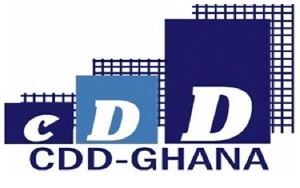The Centre for Democratic Development (CDD-Ghana) has called on Ghana to adopt a health financing strategy that aims at bridging specific gaps in the sector to ensure outputs match inputs.
CDD-Ghana's Democracy and Development Fellow in Health, Kwame Sarpong Asiedu, made the call in a research paper titled; “Towards election 2020: reshaping Ghana’s health sector.”
The February 2020 briefing paper made available to the Ghana News Agency highlighted the need for voters and civil society organizations to engage politicians on their “health promises.”
“Our health strategy must be clear on how these specific gaps would be bridged to ensure outputs are the fulcrum that ensure inputs manifest as health outcomes that show improvements in the quality of life of Ghanaians,” Mr Asiedu said.
He said increases in health expenditure over the years did not raise significantly the number of beds available to Ghanaians.
In 2017, the total number of hospital beds available countrywide was 23,829 (0.79 beds per 1000 population) with government health facilities accounting for 56.92 per cent of the total.
Mr Asiedu noted that increases in health expenditure did not raise significantly the number of beds available to Ghanaians.
Between 2003 and 2016 the total number of government hospital beds rose from 11,411 to 13,564, representing an annual average rise of 1.45 per cent.
With an average growth rate of 2.43 per cent, it implied that the contribution of government health institutions to hospital bed per capita declined.
Health expenditure must be shown to directly improve the quality of healthcare the Ghanaian receives through the conversion of health inputs and outputs into outcomes, Mr Asiedu added.
Though since 1960, he said, “Our [Ghanaians] life expectancy has increased from 45.8 years to 63.5 years as at 2017, our life expectancy ranking, among countries in the world has consistently dropped.”
While Ghana was ranked 117th country, where the population lived longer in 1960, by 2018, the country’s ranking had dropped to 157th.
Thus, 40 countries have improved the average longevity of their citizens and overtaken Ghana in the last six decades.
Ghana consistently had a Health Expenditure per Capita higher than Kenya and Rwanda between 2001 and 2016. Yet, achieved less by way of health outcomes compared to these countries.
Likewise, life expectancy for Ghana is 63.5 years, Kenya 65.91 years and Rwanda 68.34 years.
“An indication that our health inputs have not delivered value for money irrespective of who has been managing our health system and the reason why debating health on the basis of inputs may be misleading to the voter,” Mr Asiedu.
He called for the need to explore why Ghana’s expenditure of $32.73 billion over the last 16 years failed to halt the country’s slide down world rankings.
He also blamed public and civil society for failing to seek accountability from public office holders.
He was hopeful that with clear deliverables that ensure value for money and in line with projected outcomes, health sector financing challenge could be overcome in the 2020 election campaign and beyond.
General News of Tuesday, 17 March 2020
Source: GNA













